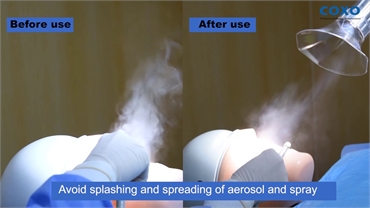Basic Suctioning Techniques You Should Know About

Suctioning is almost always necessary to remove excess saliva and fluids during a dental procedure. Suctioning also maintains a clean oral cavity and can prevent choking and aspiration.
Basic Suctioning Techniques You Should Know About
Know When and Why to Suction
Suctioning is almost always necessary to remove excess saliva and fluids during a dental procedure. Suctioning also maintains a clean oral cavity and can prevent choking and aspiration. For some dental procedures, it is important to isolate individual teeth in addition to suctioning the mouth. A dental dam or cotton roll may be appropriate. Dry-angle absorption, which uses a triangular absorbent pad, may also be helpful.
You must also suction patients when:
They cannot swallow or clear the airway on their own.
Equipment or a tooth breaks, posing an immediate risk of aspiration or choking.
The patient expresses discomfort from accumulating saliva or other fluids.
The following dental suction techniques ensure a safe and comfortable procedure for the patient:
Talk to the patient about the procedure before beginning, especially if the patient suffers from dental anxiety.
For routine dental procedures, discuss the treatment plan with the dentist before beginning. This is doubly important if the dentist will be treating several areas of the mouth because you and the dentist will have to work around one another.
Position suctioning equipment so that it does not suction oral tissue such as the gums or tongue.
Avoid obstructing the dentist’s mirror or line of sight. Do not touch any of the dentist’s equipment with the suction tip. This may require frequent changes of position.
Do not directly suction the middle of the patient’s throat, because this can cause pain, choking, and gagging.
Monitor for broken teeth, damaged equipment, and any other risk factors for choking and aspiration. Promptly responding to an unexpected emergency can prevent choking.
Position the high-volume evacuation (HVE) attachment opposite the dentist’s handpiece. It should be lateral and very close to the aerosol-producing instrument—usually just 1-2 centimeters away.
As with any medical procedure, it’s important to reassure the patient, especially when there are unusual noises or the patient coughs or gags.
Choose the Right Dental Suction Device
The right dental suction machine delivers consistent suction, uses an attachment that is an appropriate size for the patient and the procedure, and lowers the risk of complications and discomfort. The right portable suction device allows you to care for patients in any setting and is compatible with a wide range of attachments. Dentalsalemall offers a variety of premium quality dental suction machines.

